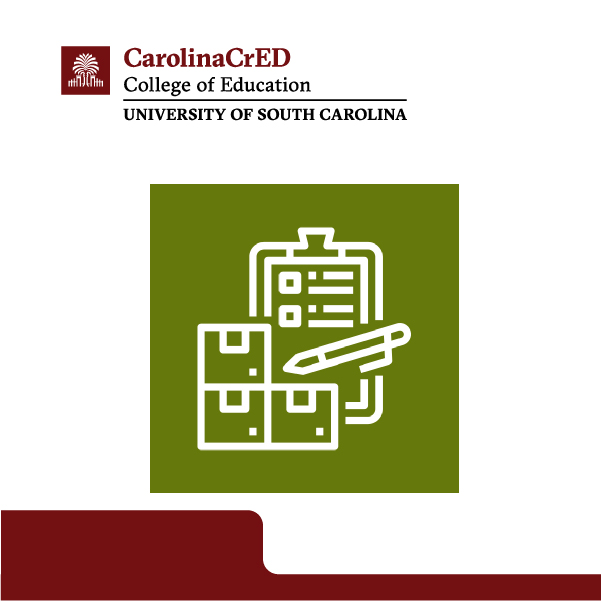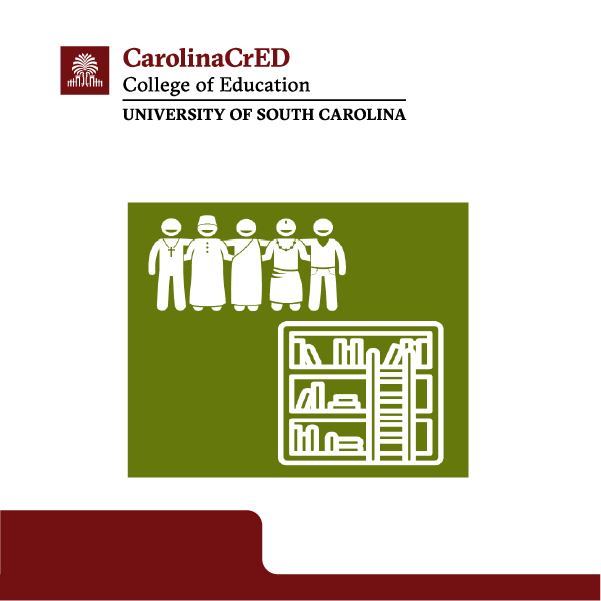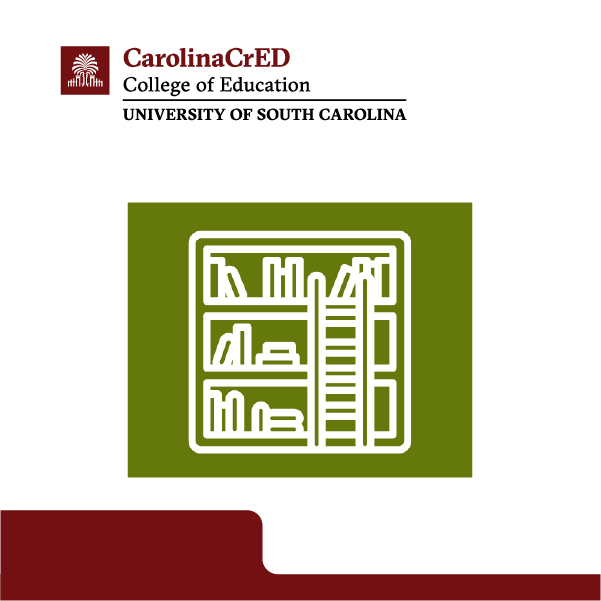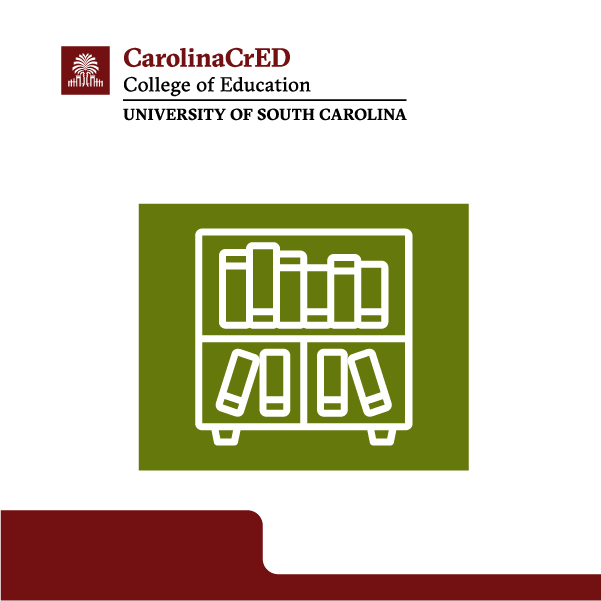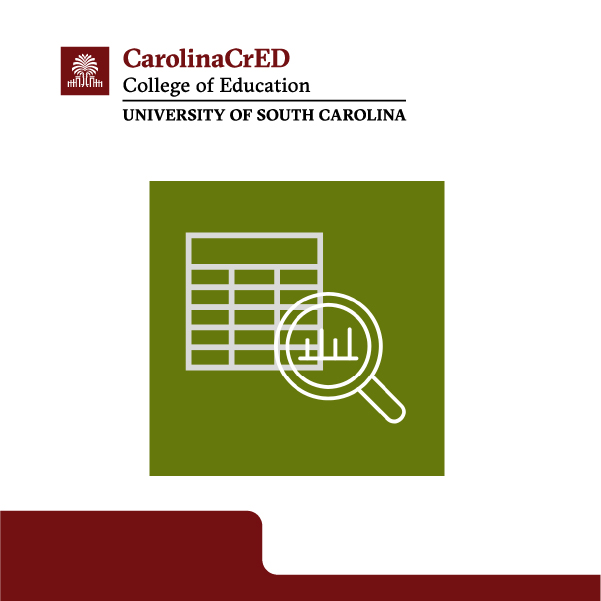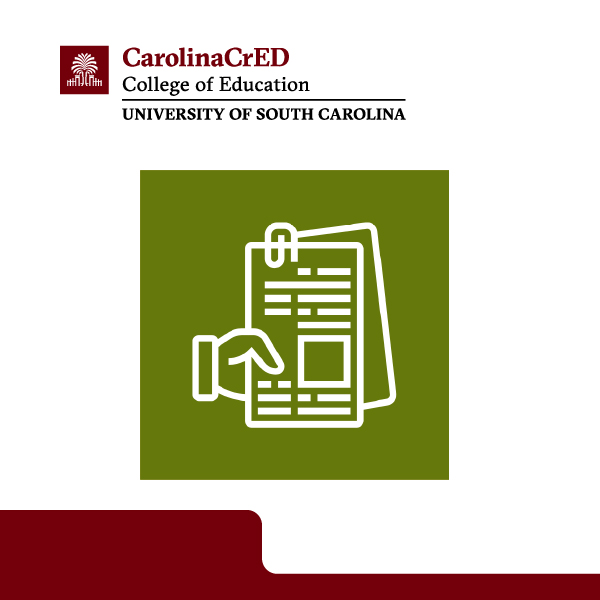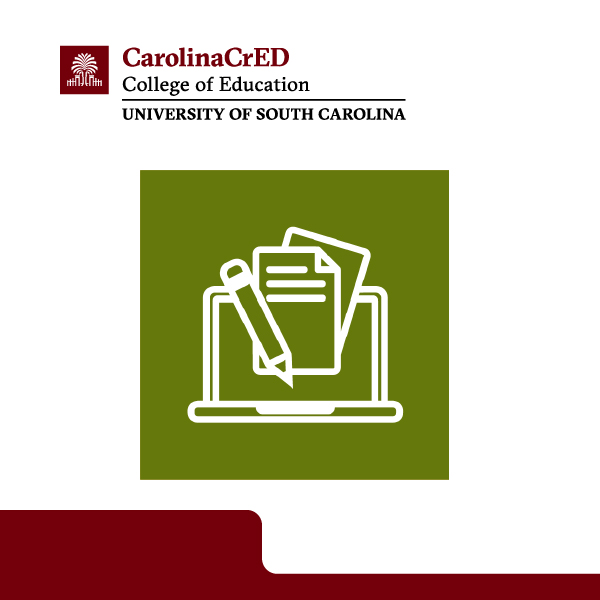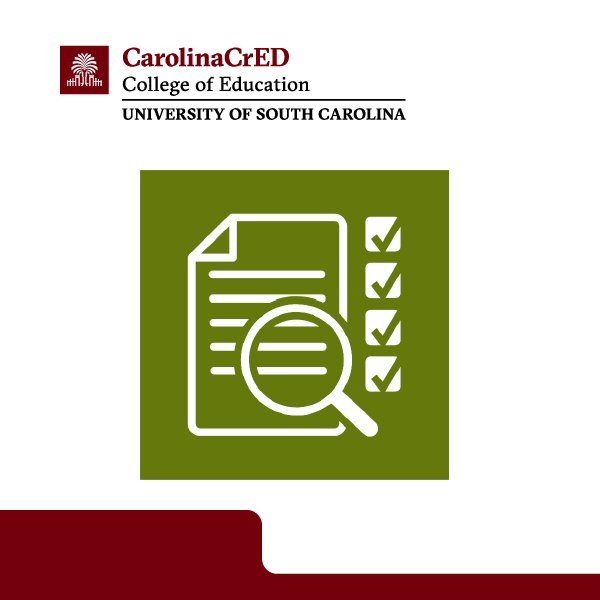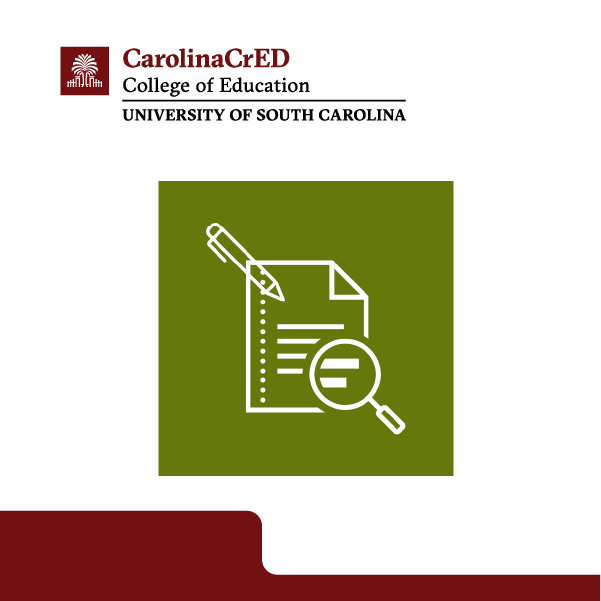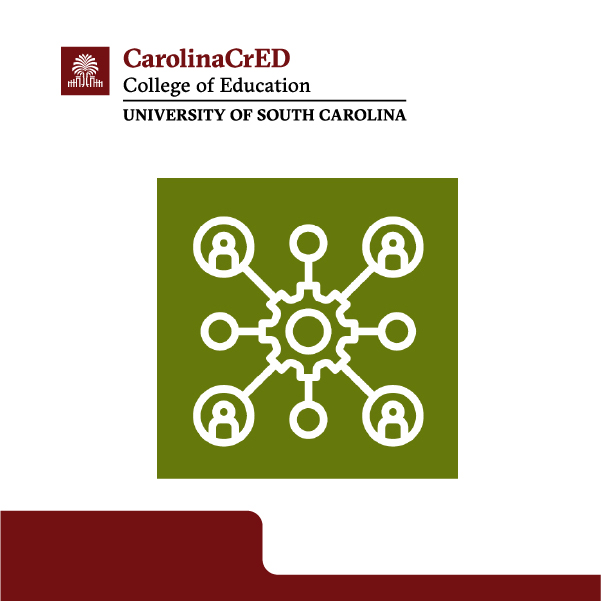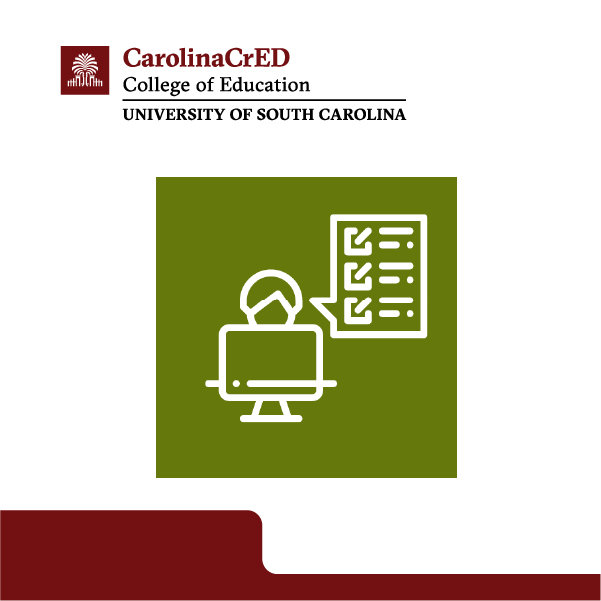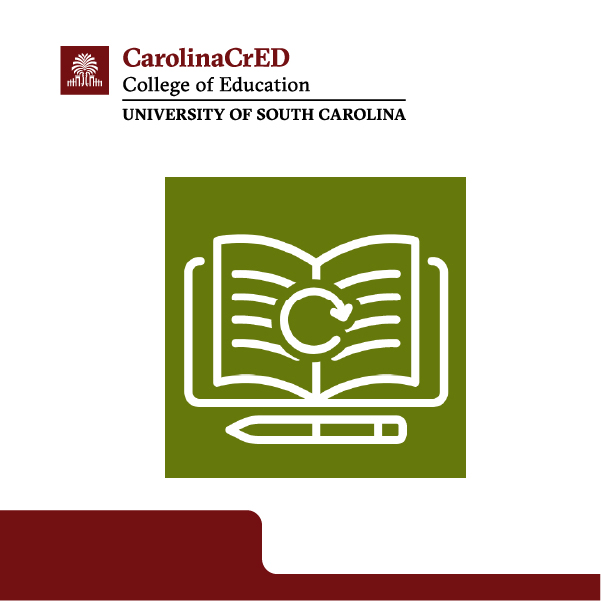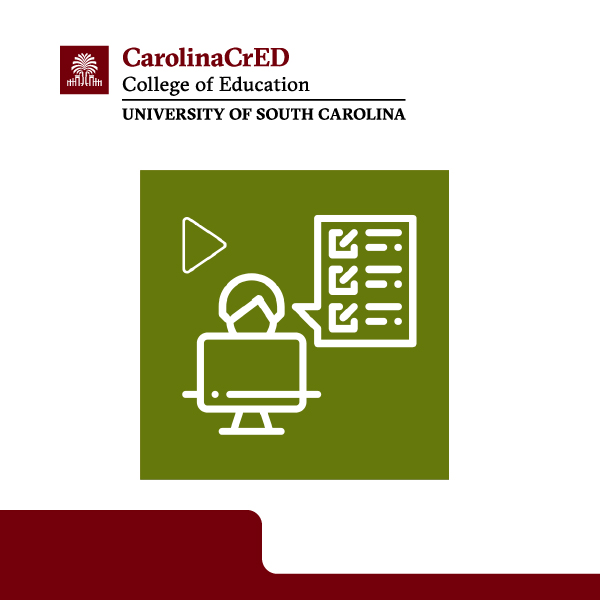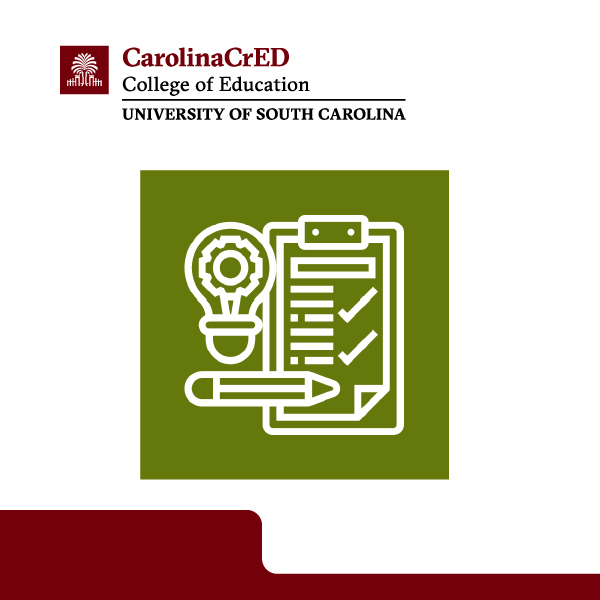To personalize professional learning, the SC Writing Improvement Network offers micro-credentials to SC educators. A micro-credential recognizes an educator’s discrete skill related to their practice based on evidence demonstrating competency. Micro-credentials are natural extensions of educators’ professional learning journeys. Educators actively and often participate in formal and informal professional learning opportunities, yet informal learning often goes unrecognized. Micro-credentials fill that gap. While a micro-credential recognizes a discrete skill of an educator based on evidence that demonstrates competency, a stack is a collection of micro-credentials addressing related skills. The SC Writing Improvement Network offers micro-credentials from the following stacks:
Stacks
This stack is designed to provide educators with the tools to create high-quality literacy instruction that recognizes communication in a diverse world that is textual, digital, and highly visual.
WHAT YOU'LL DEMONSTRATE
You will demonstrate the essential components of analyzing, designing, and implementing a variety of instructional strategies to support literacy instruction in communications.
WHO SHOULD APPLY
PK12 educators
Instructional coaches
Literacy coaches/interventionists
Education support professionals
This stack is designed to provide educators with the tools to create high-quality learning environments to support literacy instruction.
WHAT YOU'LL DEMONSTRATE
You will demonstrate the essential components of creating learning environments to promote student engagement in literacy experiences.
WHO SHOULD APPLY
PK12 educators
Instructional coaches
Literacy coaches/interventionists
Education support professionals
This stack is designed to provide educators with the tools to create high-quality literacy instruction to improve student achievement in writing.
WHAT YOU'LL DEMONSTRATE
You will demonstrate the essential components of analyzing, designing, and implementing literacy instruction through a variety of instructional strategies.
WHO SHOULD APPLY
PK12 educators
Instructional coaches
Literacy coaches/interventionists
Education support professionals



